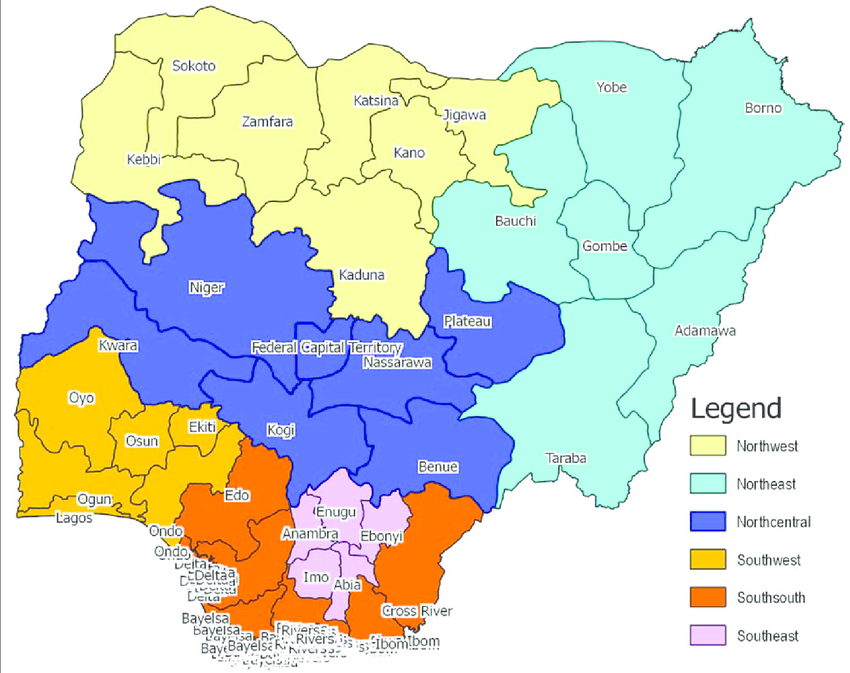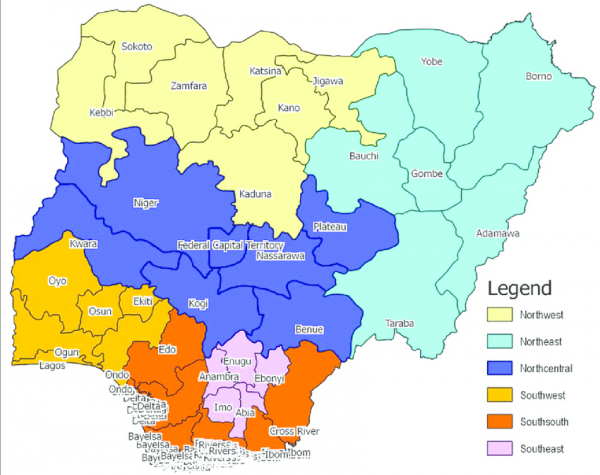As a continuation from the previous articles, a total of 434 (23%) candidates contested for the Senate in North West in 2019. For North Central, 334 (18%) candidates contested for Senate seats. A surprisingly higher number of candidates contested for the Senate in South East – 312 (16%) – a higher percentage than those contesting for House of Representatives seat in the same region.
Read more about Politics
Closely following in the South West with 311 (16%) candidates who contested the Senate. The South-South had 275 (14%) candidates while the North East had the lowest figures of 237 representing 12% of the total number of Senate contestants.
Another close look at political awareness and participation is reflected in the number of candidates who contested gubernatorial seats. 1,064 candidates contesting for 29 seats as of 2019.
Governorship contestants by geo-political zone shows: North West – 253 (24%), South-South – 185 (17%), South East – 180 (17%), North East – 167 (16%), North Central – 151 (14%), South West – 128 (12%). One quick highlight of this statistic is that the North West continued to retain its top spot in political participation.
Meanwhile, the South East moved up further to 2nd position of the 6 zones in the number of contestants who vied for gubernatorial seats while the South West had the least number of contestants. These figures do not only reflect political participation but also show the readiness of candidates to contest for positions that are considered lowly and less fanciful.
Sign up to the Connect Nigeria daily newsletter
According to data from INEC sourced by the Dawn Commission,
- Out of the 15,834,151 registered voters in the South West and 12,814,246 PVCs collected, only 4,3366,026 voted.
- Out of the 9,548,861 registered voters in the South East and 8,600,420 PVCs collected, only 2,342,740 voted.
- Of the 12,640,537 registered voters in the South-South and 11,120,948 PVCs collected, only 3,535,109 voted.
- Of all the 12,640,537 registered voters in the North Central and 9,323,437 PVCs collected, only 4,050,395 voted.
- Out of the 17,878,127 registered voters in the North West and 16,605,472 PVCs collected, only 7,619,860 voted.
- And finally, Out of the 11,260,477 registered voters in the North East and 10,450,882 PVCs collected, only 4,786,266 voted.
Bottom line
All of these data point to one thing or another that determines the responsiveness of citizens at the grassroots level of politics. The data tells us more about ourselves as a people and our politics more than we ever thought of.
The divergence in political participation figures shows how each of the 6 regions in Nigeria fares in terms of political awareness. There is no doubt that these trends will be carried over whenever devolution of powers and true Federalism is attained.
Featured Image Source: Research Gate
Got a suggestion? Contact us: [email protected]


